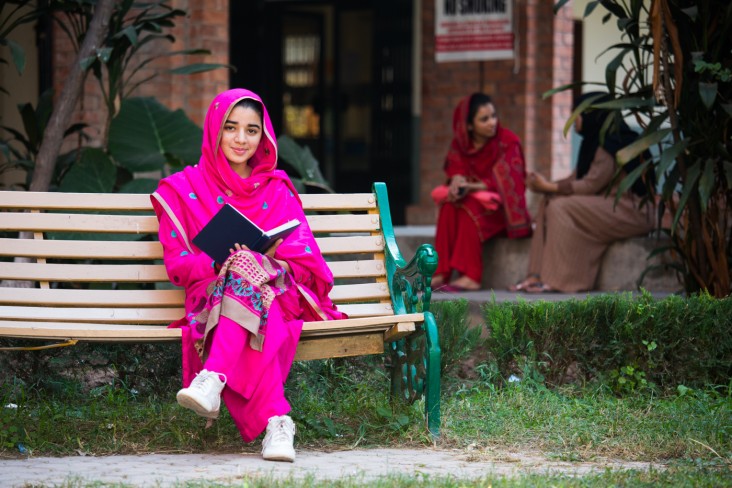
Increasing Girls’ Access to Education
To ensure more girls have the opportunity to pursue education, the Sindh Basic Education Program and Improving Education Quality Project are mobilizing communities to increase girls’ enrollment in school and train female teachers, which encourages families to send their girls to school. USAID is also rehabilitating girls’ schools in the Federally Administrated Tribal Areas and Khyber Pakhtunkhwa that were damaged in conflict and natural disasters. To support higher education, USAID provides scholarships to women through the Merit and Needs Based Scholarship program (MNSBP) and the Fulbright Program. MNSBP awards university scholarships to academically talented, but economically disadvantaged Pakistani students. USAID also funded the construction of a 384-bed women’s dormitory at Forman Christian College in Lahore so women from remote areas of the country can attend college. As a part of the U.S. Let Girls Learn Initiative, USAID is committing $70 million and working jointly with the Government of Pakistan and other partners to help educate and empower over 200,000 adolescent girls across Pakistan.
Increasing Women’s Participation
Through the Gender Equity Program, USAID provided grants to help 475,000 women register for Computerized National Identity Cards (CNICs), which give them access to services and allow them to vote. GEP is catalyzing critical groups to influence policy and legislation and to advocate for women’s greater participation in politics and the economy. In addition, USAID’s Political Parties Development Project helps Pakistan’s political parties more effectively develop policies that respond to constituent and grassroots concerns and seeks to promote greater participation of women, particularly within leadership bodies. This project encourages parties to have women comprise at least 50 percent of working groups, research units, and training fellowships. This exposure will give women the opportunity to enhance their skills, advocate their positions, and advance within their respective parties.








Comment
Make a general inquiry or suggest an improvement.